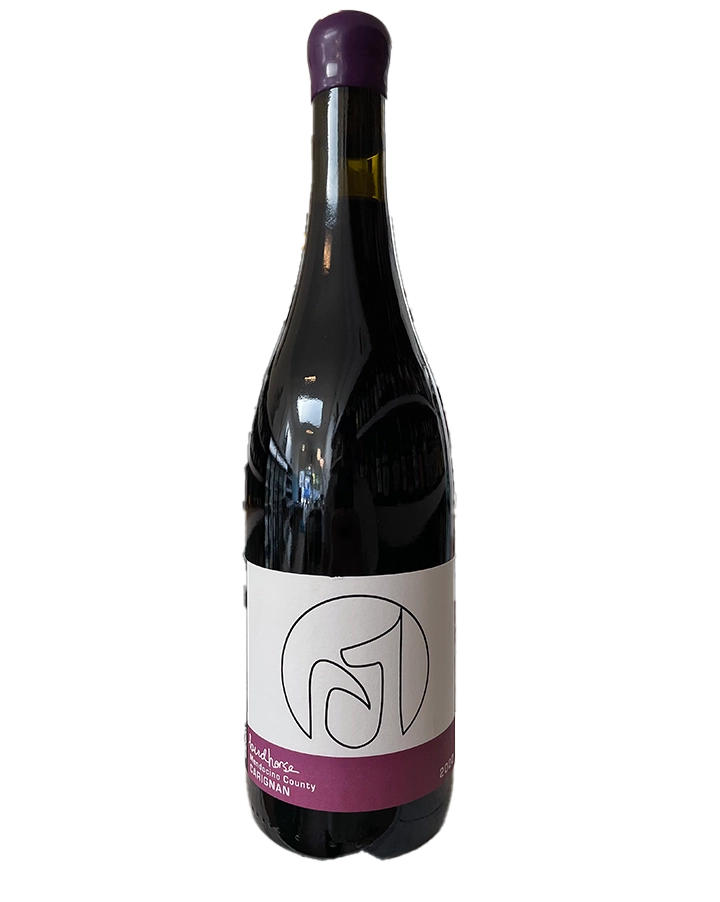Birdhorse Wines 2022 Carignan Mendocino County
Birdhorse Wines 2022 Carignan Mendocino County
• 750ml bottle
• 13.5% ABV
• 100% Carignan
• Practicing Organic
• Poor Ranch Vineyard (mult-generational family owned on benchland outside Hopland)
• Dry-farmed
• Redvine Sandy Clay Loam
• Native yeast fermentation
• 33% whole cluster
• Stainless steel fermentation then direct press to barrel for 9 mos. before bottling
A wine with coolness and depth, aromas of mulberry and tarragon complement a juicy raspberry backbone with an undertone of dusty chaparral. Gravelly tannin accentuates a medium-dense structure with a peppery finish.
Birdhorse Wines represent the future of California winemaking—in an effort to diversify the landscape of wine in California, Winemakers Corinne Rich and Katie Rouse created Birdhorse to showcase regions, varietals, and humans that have long had a presence in this industry but have yet to been celebrated by many of its constituents. Rich and Rouse met while receiving their M.S in Viticulture and Enology at UC Davis, after graduating they travelled to South Africa to work the 2018 harvest together and in an old-vine Verdelho vineyard at Mullineux (where Katie was working harvest) they found their inspiration for Birdhorse Wines.
Birdhorse Wines focuses on making compelling and balanced wines from lesser-known wine regions and uncommon varietals. Most of the grapes sourced come from warmer regions like Suisun Valley, Dry Creek Valley, Amador County and inland Mendocino—proving that it’s possible to make restrained wines from warmer climates, something that has becoming increasingly relevant with the ever-growing changes in global climate. When choosing vineyard partners farming practices are paramount, and they only work with organic and sustainably grown fruit. Birdhorse wines are always single varietal, and always from grapes that fall outside the box of what one might expect from a California wine (you will not find Chardonnay or Pinot Noir in their repertoire of grapes). A minimal intervention winemaking approach is employed including native yeast ferments, no new oak use, and minimal SO2 additions. These wines are balanced, elegant and unique—a true testament to the skill and talent of the two women that make them.
Share

